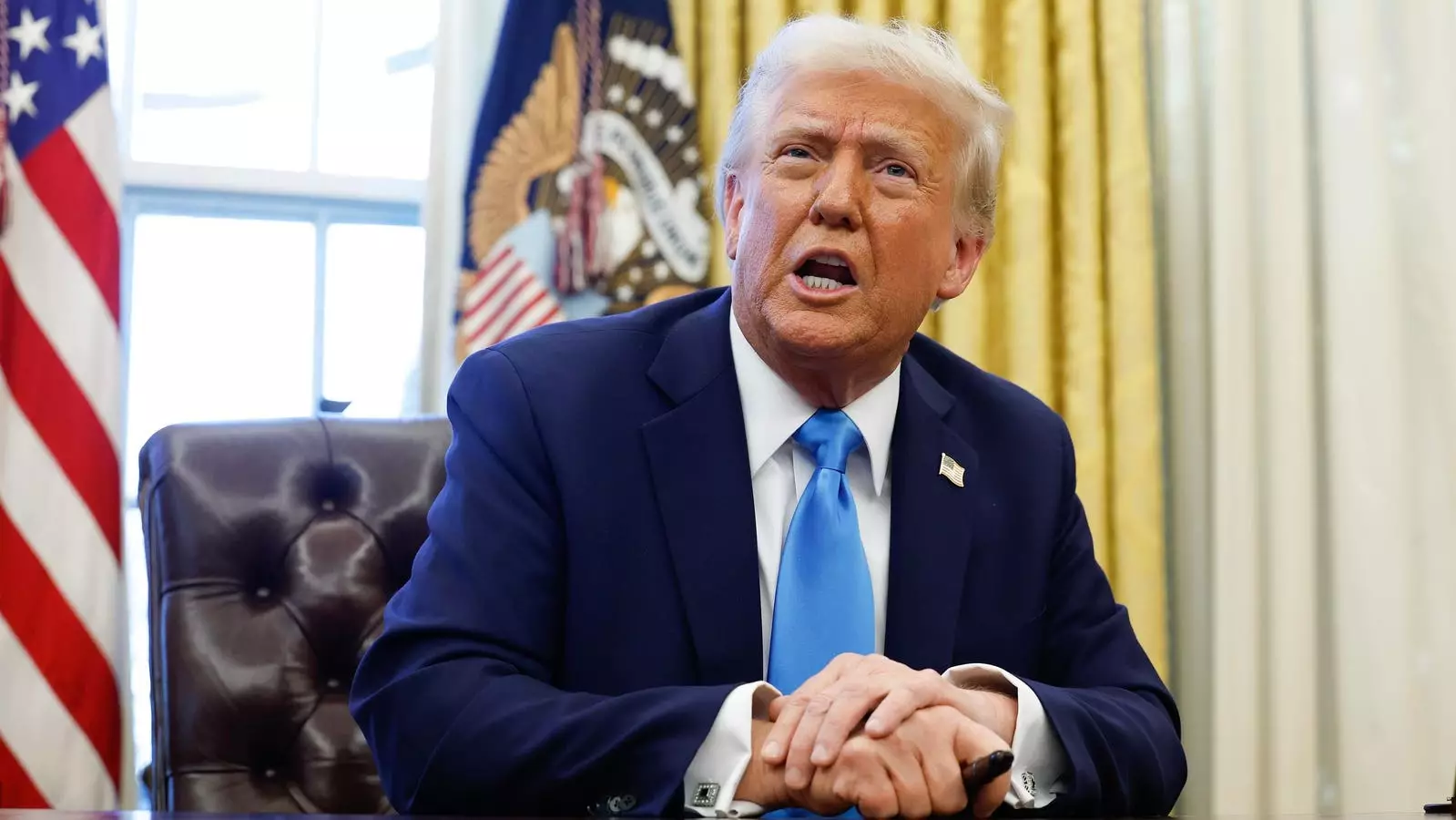The political landscape in the United States has experienced significant upheaval as the Trump-J.D. Vance administration implements sweeping reforms across various areas including humanitarian aid, immigration, and health policy. These changes do not merely reflect shifts in domestic policy but could also alter the fabric of global relations and humanitarian efforts. Understanding the implications of these changes is crucial, as they will inevitably affect not only the citizens of the United States but also millions around the globe.
Despite campaigning on a platform that prioritized lowering inflation, the administration’s policies are starting to show a potentially contrary effect on food prices. A recent study by economists highlights how the administration’s trade conflicts and tariff strategies may lead to increased costs for both imported goods and domestically produced items. This upward trend in food prices threatens to exacerbate the struggles faced by low and middle-income families trying to maintain a balanced diet.
As inflation continues to pose challenges for many households, the administration’s approach could trample the economic mobility of those who are already financially vulnerable. The choice to impose tariffs aligns with a broader agenda that, rather than solving issues, seems focused on creating further financial strain on American families hoping for relief from rising costs.
Foreign Aid and Global Humanitarian Concerns
One of the most alarming aspects of this administration’s policies has been the proposed freeze on foreign aid. The U.S. Agency for International Development (USAID) has historically played an instrumental role in providing crucial humanitarian assistance across 65 countries, reaching an estimated 60 million individuals. With significant layoffs looming and employees recalled to the U.S., there is a palpable sense of anxiety among humanitarian workers.
The abrupt termination of support services endangers not just governmental and diplomatic relationships but also the foundational structure of global food security and medical care in several impoverished regions. As Congressman Eric Sorensen recently noted, reducing benefits for vulnerable populations does not equate to effective governance; rather, it signals a retreat from moral responsibility.
This isolationist position may foster not only humanitarian crises but also exacerbate global tensions, as countries that depend on U.S. aid find themselves in precarious circumstances. A potential drop in the quality of life for millions globally could eventually lead to increased instability—an irony considering the administration claims to prioritize American interests first.
Immigration has long been a contentious issue, and the recent executive orders targeting both documented and undocumented immigrants could deliver significant disruptions to America’s food system. Over 75% of the U.S. agricultural workforce is comprised of immigrants, whose contributions are essential not just for maintaining crop production but for sustaining the broader economy.
Research indicates that immigrant labor significantly bolsters tax revenues and supports local economies. The harsh immigration measures implemented by this administration—including increased raids by U.S. Immigration and Customs Enforcement (ICE)—could lead to a labor shortage that hampers agricultural productivity. Consequently, this shift could increase food scarcity, which in turn raises prices for consumers. The anticipated expansion of the H-2 visa program might offer some reprieve for labor needs; however, it also raises concerns about the potential for exploitation and abuse among vulnerable migrant workers.
As the administration announces its intention to withdraw from the World Health Organization (WHO) and the Paris Agreement on Climate Change by January 2026, the potential ramifications are profound. Long-term partnerships that have supported global health initiatives over decades are suddenly at risk, which could have disastrous effects on the quality of healthcare responses worldwide—particularly in pandemic scenarios.
Additionally, the recent pause in funding crucial measures related to climate-smart agricultural practices reflects a disengagement from modern, evidence-based approaches to health and agricultural policies. For an administration claiming to prioritize domestic wellbeing, such decisions contradict efforts towards sustainable progress both in health and the environment.
The policy shifts under the Trump-Vance administration signify more than mere governance changes. They represent a radical shift in how the United States positions itself on the global stage, influences economic conditions at home, and attends to humanitarian obligations abroad. The long-term consequences are still unfolding, yet the signs indicate a worrying trend that could lead to lasting damage both domestically and internationally. As citizens and global inhabitants, it falls upon us to remain informed and engaged in the face of these profound changes.


Leave a Reply